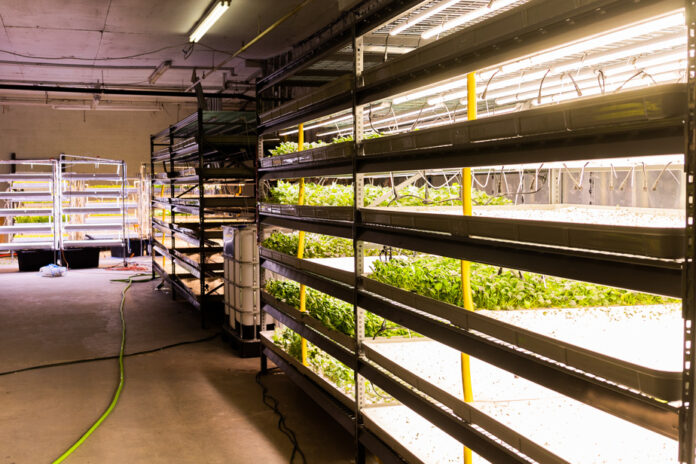Although the demand for local food continues to grow in Quebec, the development of viable agricultural businesses remains a major challenge for the next generation of farmers. However, one project demonstrates interesting results: the agricultural motel, a model halfway between an incubator and the establishment of agricultural businesses.
In the Ahuntsic district of Montreal, the Centrale agricole brings together some twenty agricultural businesses in 90,000 square feet of an industrial brown brick building. Designed according to the model of the agricultural motel, it is the largest cooperative in urban agriculture in Quebec.
“What really distinguishes agricultural incubators from agricultural motels is that we have understood that there are people who do not want to move elsewhere after three or four years, who want to stay in the where they grow,” says Jean-Philippe Vermette, director, intervention and public policy, of the Urban Agriculture Laboratory. Thus, in addition to giving impetus to new entrepreneurs by providing them with infrastructure and various services to set up their projects, the agricultural motel is not a time-limited offer. The companies that are members of the Centrale agricole can therefore stay on site as long as they wish.
“It’s really excellent if you compare it to farming in general mode. This is due to our community that we have created, to the exchanges that take place, but also to the establishment of a rigorous selection committee,” explains Mr. Vermette, who is also Chairman of the Board of administration of the Central Agriculture.
As in any cooperative, the members of the Centrale agricole pay a qualification share to which are added fees for the various services used. Food production and processing spaces are made available to members, who also benefit from training programs, networking and several other services to help them in the turnover and development of their business.
The process for accepting new members is very rigorous. Candidates must not only demonstrate that they have viable ideas, but also that they share the vision of the cooperative and that they are ready to invest energy in it. “We have employees, but we still want the members to get involved”, specifies the president of the Board. Speaking of employees, they are put at the service of the various member companies of the cooperative, a major asset in times of labor shortage.
The sharing of costs and labor is a real advantage for the members of the Centrale agricole. However, a sword of Damocles hangs over this innovative model of farm succession: ownership.
“We do not own the building, we are tenants with a lease renewable every five years. If our landlord decides overnight to double the rent, all of that no longer works in the model,” says Jean-Philippe Vermette.















